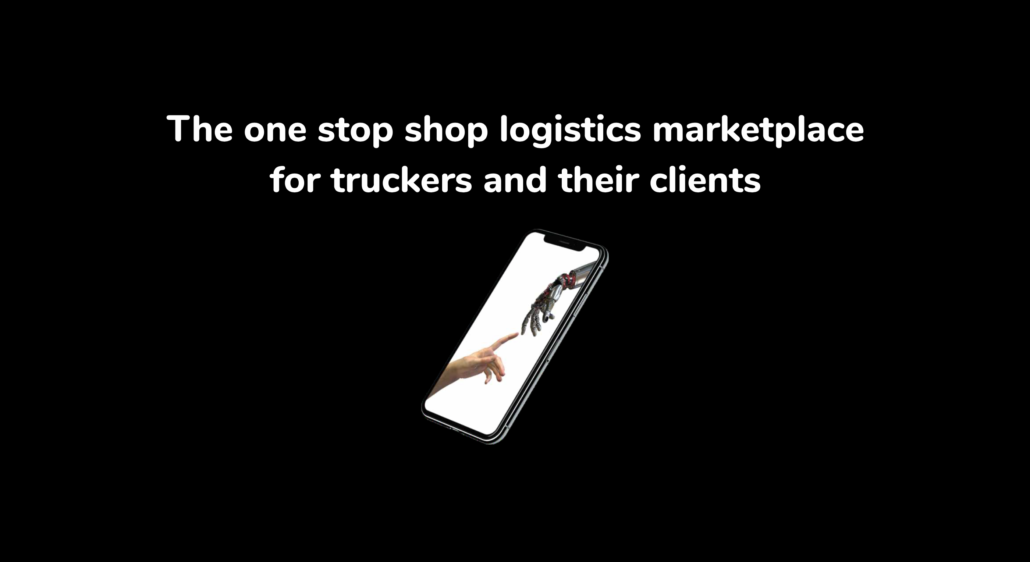Meet Qoobus: The OS for the Freight Industry
Qoobus is the first startup from the Republic of Moldova to make it into the StartupYard program. Qoobus is a LogTech company that provides transportation companies and their clients with the best freight and transportation solutions to make their operations more efficient, secure and transparent.
A 3 trillion market in Europe alone, the logistics industry is experiencing disruptive innovation rapidly. We sat down with Mihail Cernei, the founder and CEO of Qoobus. Mihail has been working in the freight industry for the last 10 years and being an innovator at heart saw how to make the life of truckers and shippers easier. Qoobus was born.
Hi Mihail! It might surprise people to learn that you were originally a lawyer, before getting into the logistic industry and founding Qoobus. Can you tell us about your journey?
Actually it might sound even more surprising but I also have a CMA ( Certification in Accounting and Audit). It was something I needed to combine with my law practice when consulting corporate clients on their financials and legal issues.
Talking about my venture in the logistics industry, I can say that it was a pure accident.
In late 2009 a friend of mine convinced me to invest in a transportation company. It was quite an encouraging time back then, 2008’s financial crisis was ending, ecommerce was booming and it was pushing the transportation industry to be faster, and more efficient than ever before. In some ways I was sure I invested in the right direction. But my ideas about it changed, when I found out that things were not going so well inside the company.
From one side, the company was growing at a fast pace but on the other side it just could not sustain its own growth. Because of lack of technology and market visibility it was being run un-efficiently, we were operating at very low margins and every mistake was hitting us “like a truck” financially. It was a real struggle.
It took us four long years to finally stabilise the company by developing and implementing an inhouse technical solution to manage all the workflow, from client acquisition, to transportation management and payment optimization. At that time, I realised that we were not the only ones having this problem and that our solution was applicable to the whole SMB (small to medium-sized businesses) transportation market.
So around late 2014 we started developing our first concepts of what later we called Qoobus.
Are you saying the desire to help others is at the core of Qoobus?
I think back then, we did not know much about technological disruption or revolution. We, as a team, were emotionally driven and having that feeling of successfully helping somebody was our main motor to drive us into this venture. But it was a no brainer to apply all the knowledge we had, into a product that had very deep disruptive potential even in that “just an idea format” we initially were brainstorming on.
What did you see as fundamentally wrong with the transportation industry?
It’s a highly fragmented sector, composed of hundreds of thousands of businesses (SMB), varying enormously in size, that are moving billions of freight of widely varying sizes and weights on a myriad of possible routes. It’s an industry using “backbone technologies”, stuck in piles of paper, fax machines, e-mails or in closed data silos.
Given the scale and complexity of the freight transport system, it is just impossible to analyse and understand it in the absence of large statistical databases.
It’s like a linked chain of events. A lack of technological evolution and adoption, leads to a lack of automation, that leads to a lack of Big Data that leads to lack of transparency.
For us, “logistics is just broken”.

The Qoobus Main Interface
What are you trying to accomplish with Qoobus that you think no other platform has been able or willing to do?
First of all, Qoobus at its core, is a state of the art Artificial Intelligence freight matching engine, built on the latest available technology, not only to connect freight demand with supply but to also predict it by using big data. This enables us to empower SMBs logistics & transportation companies to operate efficiently in the market.
Exactly the contrary of what big industry players are willing to do. Most of them are keeping it as complicated as possible by enabling layers and layers of legacy IT infrastructure and rigid processes that are hard to transform into the cloud-age.
When we started building Qoobus we had only one thing in mind – to make life easy for truckers and their clients.
Consequently, we are changing the rules of the game. It is no longer “the big eats the small” but rather “the fast eats the slow”
What have been your team’s biggest personal or professional challenges in making this project a reality?
Taking aside the financial factor that usually makes it hard for any startup in its initial stages, I’m convinced that the biggest challenge we had as a team was to learn to completely trust each other, be united and stick together.

The Qoobus team
For our readers who are not too familiar with the freight industry, why do you think we are seeing so much innovation happening. What is driving this innovation?
Let me put it like this, transportation is the world’s second largest industry. All of its branches combined, generate a global market worth 7 Trillion Dollars a year and it’s an industry in growth mode. But also transportation is one of the most outdated industries in terms of technology.
A strong digital DNA is a prerequisite for corporate success in the 21st century. However, to date, the majority of industry players still work with largely manual processes, relying on phone, fax, spreadsheets and e-mails. Using such “backbone technologies” means that its results are by definition slow, error prone, not exponentially scalable and come at high costs per unit.
Future industry players will be those who understand how to exploit technologies such as cloud based services, IoT/sensors, predictive data analytics and blockchain.
Lack of digital DNA in this industry is not a secret, so everyone is well aware of these problems and of course there are a lot of startups trying to innovate it. In fact there are so many startups doing it, crying disruption, innovation, revolution that it got to the point of a “kid crying wolf”; it’s not raising eyebrows anymore. Disruption has been mentioned one too many times.
Both enterprise and SMB customers nowadays expect to get shipments delivered faster, more flexible and with a higher degree of transparency at a lower price — like the “Consumer Market” did 15 years ago, driving the fundamental digital disruption that has happened to the travel & taxi industries.
So answering your question, yes, there is a lot of innovation but most of it failed. Because of too many reasons, maybe because it was addressing the needs of the big industry players instead of the ones that actually need it, we will never know.
But don’t get me wrong there will be a disruption in this industry in the very near future. A revolution so big that it will change everything, it will be a fundamental disruption.
How many clients do you have today and in which countries are you seeing the biggest interest?
We started with operations in the Republic of Moldova in mid 2017 and naturally expanded to the Romanian market in 2018. At the moment we are expanding in countries like Belarus, Ukraine, Lithuania, Estonia, Latvia. We should be hitting the 9,000 Registered Companies mark as we speak. The biggest interest doesn’t come from companies based in particular regions, but from companies that happen to be in a certain stage of their development. Our core user base is mostly small to medium-sized businesses.
What do you hope Qoobus is going to be in 5 years, as a business, or as a technology? What would be your ideal scenario?
In an ideal world, our vision of Qoobus being the one stop shop freight marketplace should be materialised. By then we would have an army of partners all over the world and with our services we would be strong and viable enough to offer SMB transportation companies and their clients a platform where they can interact and do business with ease, in complete transparency.

You’re based in Moldova which geographically and historically is a very multicultural country. Are there particular quirks about the Moldovan market or culture that you would say give your company an advantage or a fresh perspective?
Being based in Moldova mostly helped us gain valuable know-how of western and eastern ways of doing logistics. When it comes to doing business we are very flexible because of our understanding of western and eastern european culture. But I would say that our biggest advantage as a team, as a company, doesn’t come from our geographical location or our multilingual capabilities. It comes from us being at the right age to have seen and experienced the world without the power of the internet to actually being part of the internet revolution.
Has there been a major surprise for you since joining the StartupYard program?
Actually the whole StartupYard program was a surprise for me, every single bit of it. I found it to be very challenging at first but then, with time, I progressed on a personal and professional level. It really is an accelerator, meant to accelerate things and challenge you to achieve your milestones.




